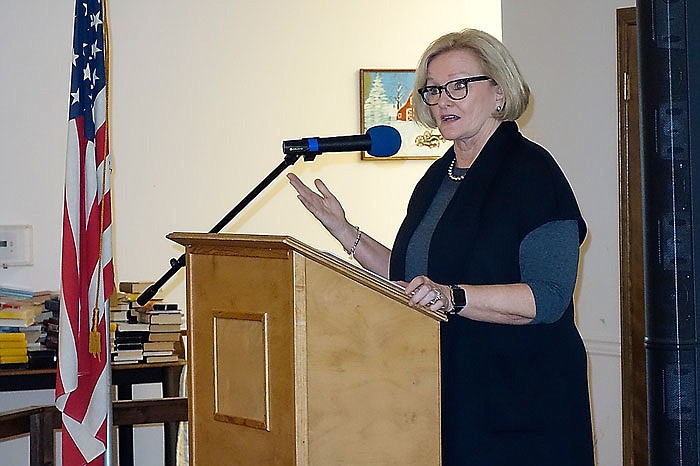U.S. Sen. Claire McCaskill told reporters Wednesday calls to her office on health care "are running about 98 percent against repeal."
About the same time McCaskill, a Democrat, was visiting with Missouri reporters on a mid-day telephone conference call, President Donald Trump was telling U.S. Senate Republicans at the White House they should forgo their scheduled August break and instead work to approve a plan to repeal and replace the Affordable Care Act, also known as Obamacare.
So far, the GOP-controlled Senate has not found the 51 votes needed to pass any changes to the health care law.
"I think the senators are voting (against the repeal bills) because these proposals are not supported by the people," McCaskill said. "If they have an idea for a proposal that would be supported by the people, then they probably would have more luck getting the votes."
She said it's unusual for her office to get 98 percent of the calls for or against any issue.
"Typically when we have something controversial, our calls come in 50/50, or maybe 60/40," McCaskill explained. "Something that's really popular, it might be 70/30.
"But very rarely do we have this kind of lopsided agitation from Missourians about a topic. And I know this is happening in every senator's office."
Missouri's other U.S. senator, Republican Roy Blunt, also has been getting a lot of calls in his five Missouri offices and one in Washington, D.C., spokeswoman Katie Boyd told the News Tribune. "I don't have a tally to share, but we are hearing from constituents on both sides of the issue and sharing their messages with (Blunt)."
McCaskill also noted health care was one of the main topics raised by those who came to the 10 town hall meetings she held in rural communities earlier this month - including California, Ashland and Eldon in Mid-Missouri.
As for Trump's suggestion for Congress to stay in Washington and work on health care, McCaskill said: "I'm happy to stay here as long as we need to stay here."
But she would prefer to have open hearings and debate over a variety of ideas to improve health care options for the most people.
"We need to look at all of these ideas and ask questions about them and hear from the health care experts," she said. "All of us (senators) are hearing from health care experts, but we're hearing it one-on-one - and the American public is not hearing it."
Currently, she noted, "If you get hit by a car and go to the emergency room, we're going to take care of you - even if you decided not to buy insurance. And all of us who have insurance are paying those bills."
The Affordable Care Act sought to balance that issue by requiring everyone to buy insurance - a policy the U.S. Supreme Court upheld as constitutional.
But many Obamacare opponents object to forcing healthy people to buy insurance they don't think they need - and removing that mandate has been one of the goals of those who want to repeal and replace the 2010 law.
"There are a variety of things I'm willing to look at in order to get a bipartisan compromise," McCaskill said. "Would I prefer there to still be an issue of personal responsibility? Yes, because just like with car insurance - you have car insurance so someone else doesn't have to pay for what you're responsible for, (and) health insurance is the same way."
She said one of the areas for negotiation should be, "How do we keep enough healthy people in the pool to keep the costs reasonable for the people who are drawn to those exchanges because they do have health concerns, and therefore, their health care is more expensive?"
McCaskill said she and others have ideas.
"I'm hopeful that you will see (us) get this thing out of a few guys in a back room, of one party, trying to decide what our future health care system would look like," she said, "and get it out into the open for an open discussion and bipartisan work."

